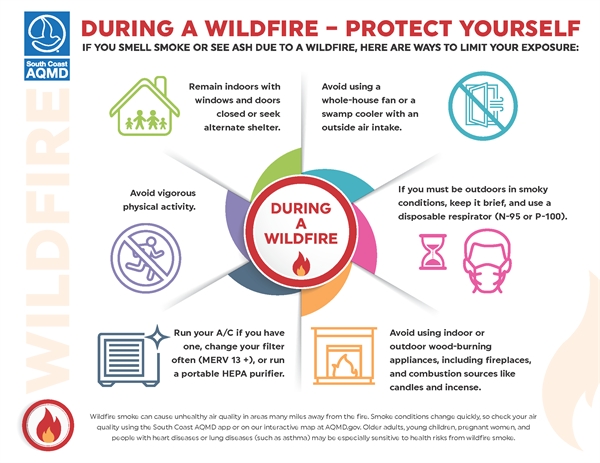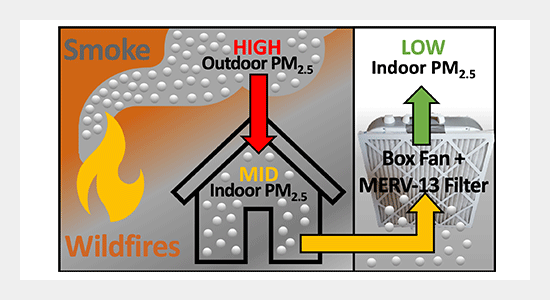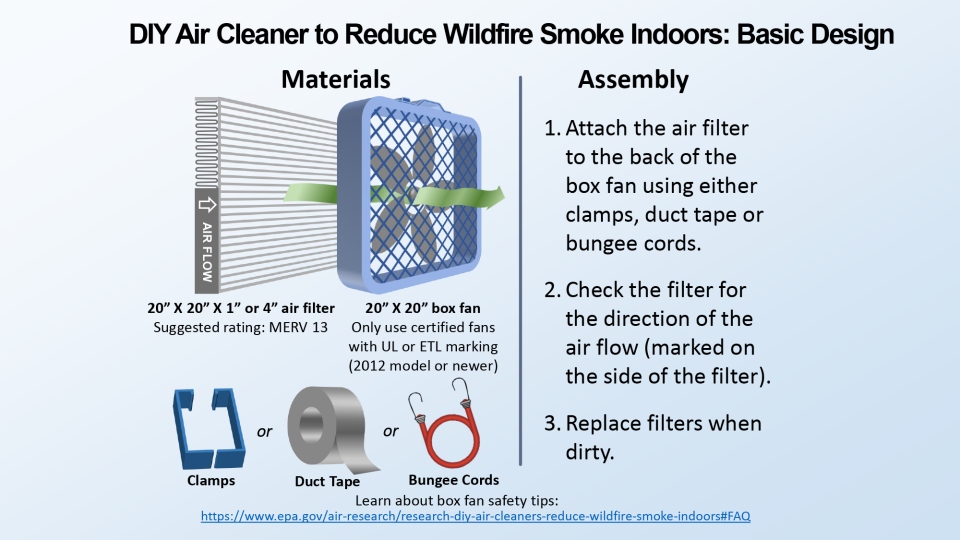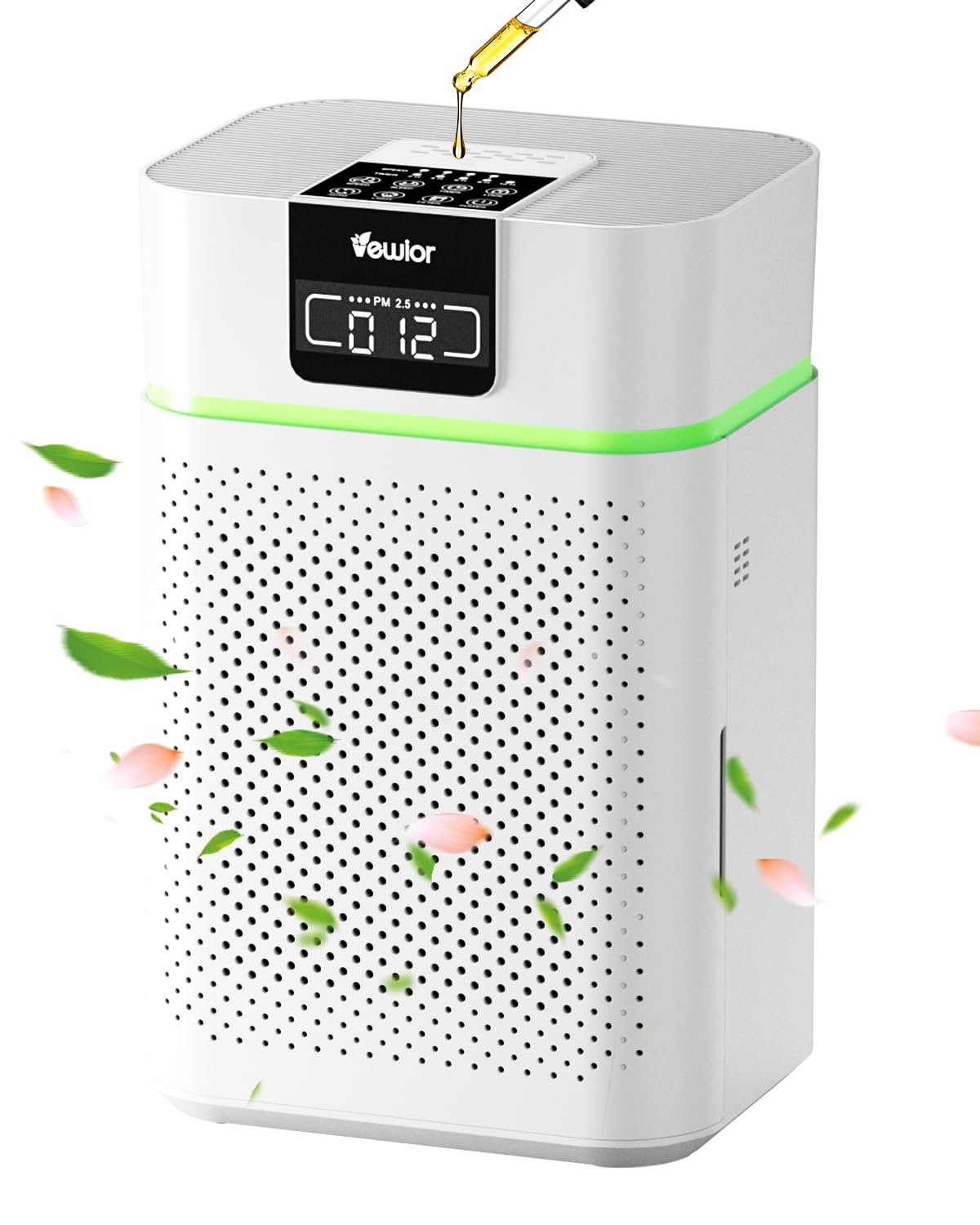Yes, air purifiers can help with indoor air quality during wildfires. They remove harmful particles from the air, making it safer to breathe.
Wildfires release smoke and ash, which can enter your home. These particles are harmful and can affect your health. During wildfire season, indoor air quality often worsens. Many people wonder if air purifiers can make a difference. Air purifiers are designed to filter out pollutants from the air.
They can trap smoke, dust, and other harmful particles. This makes the air inside your home cleaner and safer. In this blog post, we will explore how air purifiers work and their effectiveness during wildfires. We will also discuss what to look for in a good air purifier to ensure your home stays healthy.

Credit: www.aqmd.gov
Air Quality During Wildfires
Wildfires can dramatically lower air quality. Smoke and ash fill the air. These particles travel long distances. They affect homes far from the fire. This can be harmful for all living beings.
Indoor air quality suffers during wildfires. Smoke enters homes through windows, doors, and vents. It becomes difficult to keep indoor air clean. Air purifiers can help reduce these indoor pollutants.
Impact On Health
Breathing smoky air is dangerous. It can cause coughing and throat irritation. People with asthma or allergies may suffer more. Wildfire smoke can trigger asthma attacks. It can also cause headaches and fatigue.
Long-term exposure can lead to serious issues. Heart and lung diseases can worsen. Children and elderly are at higher risk. Keeping indoor air clean is crucial for health.
Pollutants Released
Wildfires release many pollutants. The main ones are particulate matter and gases. Particulate matter includes tiny ash and soot particles. These can enter the lungs and bloodstream.
Harmful gases are also released. Carbon monoxide is one of them. It reduces oxygen in the blood. Another is volatile organic compounds. These can cause dizziness and nausea.
Reducing indoor pollutants is important. Air purifiers can filter out many of these harmful particles. They help improve indoor air quality.

Credit: aaqr.org
Air Purifiers’ Role
Wildfires can significantly impact indoor air quality. Tiny particles and smoke infiltrate homes. This is where air purifiers come in. They help remove harmful pollutants from the air. By doing so, they create a safer indoor environment. Let’s explore how air purifiers work and the types available.
How They Work
Air purifiers draw in contaminated air. They pass it through filters. These filters trap pollutants and particles. Clean air then circulates back into the room. Some purifiers use HEPA filters, which capture 99.97% of particles. Others use activated carbon filters. These remove odors and gases from the air. Some models even use UV light to kill bacteria and viruses.
Types Of Air Purifiers
There are different types of air purifiers. HEPA air purifiers are popular. They are effective at removing fine particles. Activated carbon air purifiers target odors and gases. UV air purifiers focus on eliminating germs. Some purifiers combine these technologies. This provides a more comprehensive cleaning solution.
Effectiveness Of Air Purifiers
Air purifiers can greatly improve indoor air quality, especially during wildfires. They work by filtering out harmful particles and gases from the air. This makes the air inside your home cleaner and safer to breathe. But how effective are they? Let’s break it down.
Capturing Smoke Particles
Wildfire smoke contains tiny particles. These particles can enter your home and make the air unhealthy. Air purifiers with HEPA filters can capture up to 99.97% of these particles. This includes dust, pollen, and smoke. HEPA filters trap particles as small as 0.3 microns. This means they can capture most smoke particles. This helps reduce health risks.
Removing Harmful Gases
Besides particles, wildfire smoke also contains harmful gases. These gases include carbon monoxide and volatile organic compounds (VOCs). Air purifiers with activated carbon filters can remove these gases. The carbon filter absorbs the gases from the air. This makes the air safer to breathe. It’s important to check the purifier specifications. Not all purifiers have carbon filters.
Benefits Of Air Purifiers
Air purifiers can significantly improve indoor air quality, especially during wildfires. They offer several benefits, making your home safer and more comfortable. These devices help remove harmful particles from the air, providing a cleaner environment. Let’s explore some of the key benefits of using air purifiers in your home.
Improved Respiratory Health
Wildfire smoke contains particles that can irritate your lungs. This can lead to coughing and shortness of breath. An air purifier can help. It filters out these harmful particles. Cleaner air means less irritation. This can be especially helpful for people with asthma or allergies.
Better Sleep Quality
Smoke in the air can disrupt your sleep. It can cause sneezing and coughing. An air purifier helps reduce these symptoms. It creates a cleaner, more comfortable sleeping environment. Breathing clean air can help you sleep better. You’ll wake up feeling more rested.
Choosing The Right Air Purifier
During wildfire season, indoor air quality can suffer greatly. Choosing the right air purifier becomes essential. Not all air purifiers are created equal. Different types of filters offer varied benefits. Understanding these can help you make an informed decision.
Hepa Filters
HEPA filters are highly effective in trapping small particles. They can capture particles as small as 0.3 microns. This includes smoke, dust, and other allergens. Here’s why they are a good choice:
- Traps Smoke Particles: HEPA filters can trap smoke particles, improving air quality.
- Allergen Reduction: They also reduce common indoor allergens.
- Long-lasting: These filters are durable and last long.
Pro Tip: Look for air purifiers labeled “True HEPA” for best results.
Activated Carbon Filters
Activated carbon filters specialize in absorbing gases and odors. They are perfect for removing volatile organic compounds (VOCs) and smoke smells. Key benefits include:
- Odor Elimination: Removes smoke and other unpleasant odors.
- Chemical Absorption: Absorbs harmful chemicals in the air.
- Enhanced Air Quality: Improves overall air quality by removing gaseous pollutants.
Pro Tip: Combine an activated carbon filter with a HEPA filter. This ensures comprehensive air purification.
| Filter Type | Best For | Additional Benefits |
|---|---|---|
| HEPA Filter | Smoke, Dust, Allergens | Traps particles as small as 0.3 microns |
| Activated Carbon Filter | VOCs, Odors | Absorbs gases and chemicals |
Choosing the right air purifier can significantly improve indoor air quality during wildfires. Consider the type of filter that best meets your needs. This will ensure a safer, cleaner environment for you and your family.
Proper Usage Tips
Using air purifiers correctly can significantly improve indoor air quality during wildfires. Here are some proper usage tips to ensure you get the most out of your air purifier.
Placement In Home
Place the air purifier in the room you use most often. This might be the living room or bedroom. Keep it away from walls and corners. Ensure there’s enough space around it for air to flow freely. Avoid placing it near windows and doors to maximize its efficiency.
Maintenance And Cleaning
Regular maintenance is crucial for your air purifier’s effectiveness. Check and replace filters as recommended by the manufacturer. Clean the pre-filters regularly. Dust and debris can clog them, reducing efficiency. Use a vacuum or a damp cloth to clean the exterior. This helps maintain optimal performance.
Other Methods To Improve Indoor Air
During wildfires, maintaining indoor air quality is crucial. While air purifiers help, there are other methods to improve indoor air. These methods can be both effective and simple to implement.
Ventilation
Proper ventilation is key to maintaining indoor air quality. Even during wildfires, it’s important to keep air circulating inside your home. Here are some ways to ensure good ventilation:
- Use exhaust fans in bathrooms and kitchens to remove contaminants.
- Keep windows closed when outdoor air quality is poor.
- Install a heat recovery ventilator (HRV) or energy recovery ventilator (ERV).
Natural Air Filters
Using natural air filters can also help improve indoor air quality. Plants are great natural air filters. They can absorb pollutants and provide fresh oxygen. Consider adding some of these plants to your home:
- Spider Plant
- Peace Lily
- Snake Plant
- Bamboo Palm
Another natural filter is activated charcoal. It can absorb toxins and remove odors from the air. Place bowls of activated charcoal in different rooms for better air quality.
| Method | Benefits |
|---|---|
| Ventilation | Removes contaminants, keeps air fresh |
| Natural Air Filters | Absorbs pollutants, provides oxygen |
Real-life Case Studies
During wildfire season, indoor air quality can become a significant concern. Many people turn to air purifiers for relief. But do they work? Let’s dive into real-life case studies to understand their effectiveness.
Success Stories
In California, a family faced severe smoke issues from nearby wildfires. They installed a high-quality air purifier in their home. Within hours, they noticed a significant improvement in air quality. The children, who had asthma, could breathe more easily. The family reported fewer respiratory symptoms and better sleep.
Another example comes from Oregon. A local school used air purifiers during wildfire season. The school noticed a decrease in student absences due to respiratory issues. Teachers and staff also reported feeling healthier. They credited the air purifiers for these improvements.
Challenges Faced
Not all experiences are positive. A family in Washington invested in a budget air purifier. They hoped it would help with wildfire smoke. Unfortunately, the purifier could not handle the heavy smoke. The family still experienced coughing and headaches. They later upgraded to a more powerful unit, which delivered better results.
In Montana, an office building installed air purifiers to combat wildfire smoke. They faced issues with maintenance. Filters clogged quickly and needed frequent replacements. This increased costs and required regular attention. Despite these challenges, employees reported some improvement in air quality.

Credit: www.epa.gov
Frequently Asked Questions
Do Air Purifiers Help During Wildfires?
Yes, air purifiers help during wildfires by removing harmful particles from the air. They capture smoke, ash, and allergens, improving indoor air quality.
Which Air Purifier Is Best For Wildfire Smoke?
HEPA air purifiers are best for wildfire smoke. They effectively filter out fine particles, ensuring cleaner indoor air. Choose one with a high Clean Air Delivery Rate (CADR).
Can Air Purifiers Remove Wildfire Smoke?
Yes, air purifiers can remove wildfire smoke. They capture fine particles and pollutants, making indoor air safer to breathe during wildfires.
How Do Air Purifiers Improve Indoor Air?
Air purifiers improve indoor air by removing pollutants, allergens, and smoke particles. This results in cleaner, healthier air to breathe.
Conclusion
Air purifiers can improve indoor air quality during wildfires. They remove harmful particles. Cleaner air means better health. Families with kids, elders, or pets benefit the most. Always choose a purifier with a HEPA filter. Keep windows closed to maximize effectiveness.
Regular maintenance ensures the purifier works well. Consider investing in one to protect your home. Breathe easier and stay safe during wildfire seasons.
Rakib Sarwar is a Registered Pharmacist and a reputed health and wellness blogger. He has a great interest in Air purifiers.
